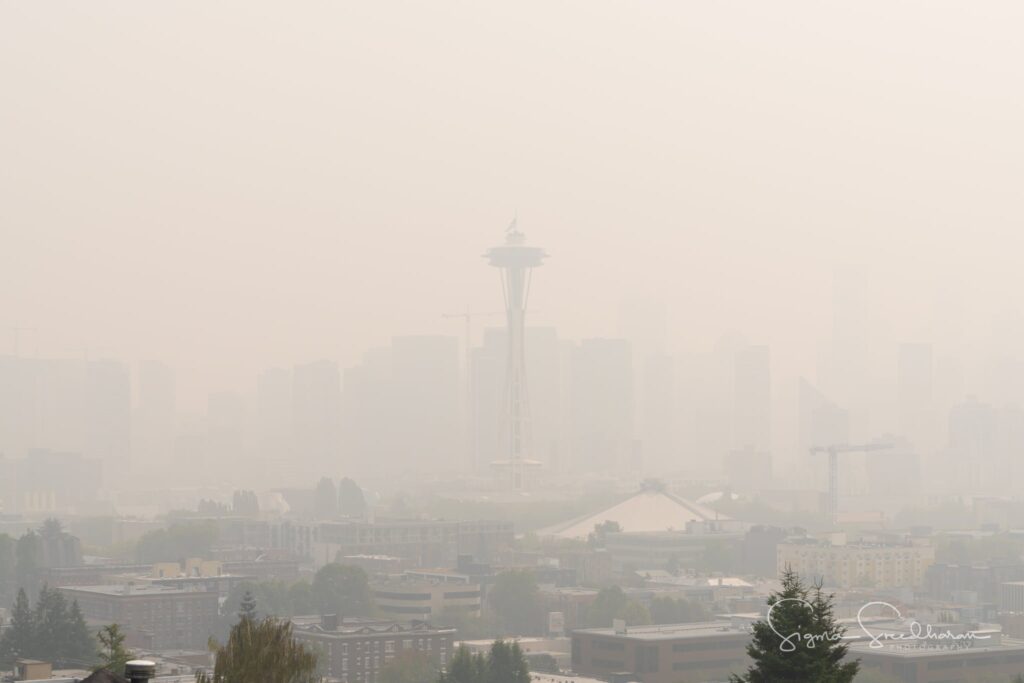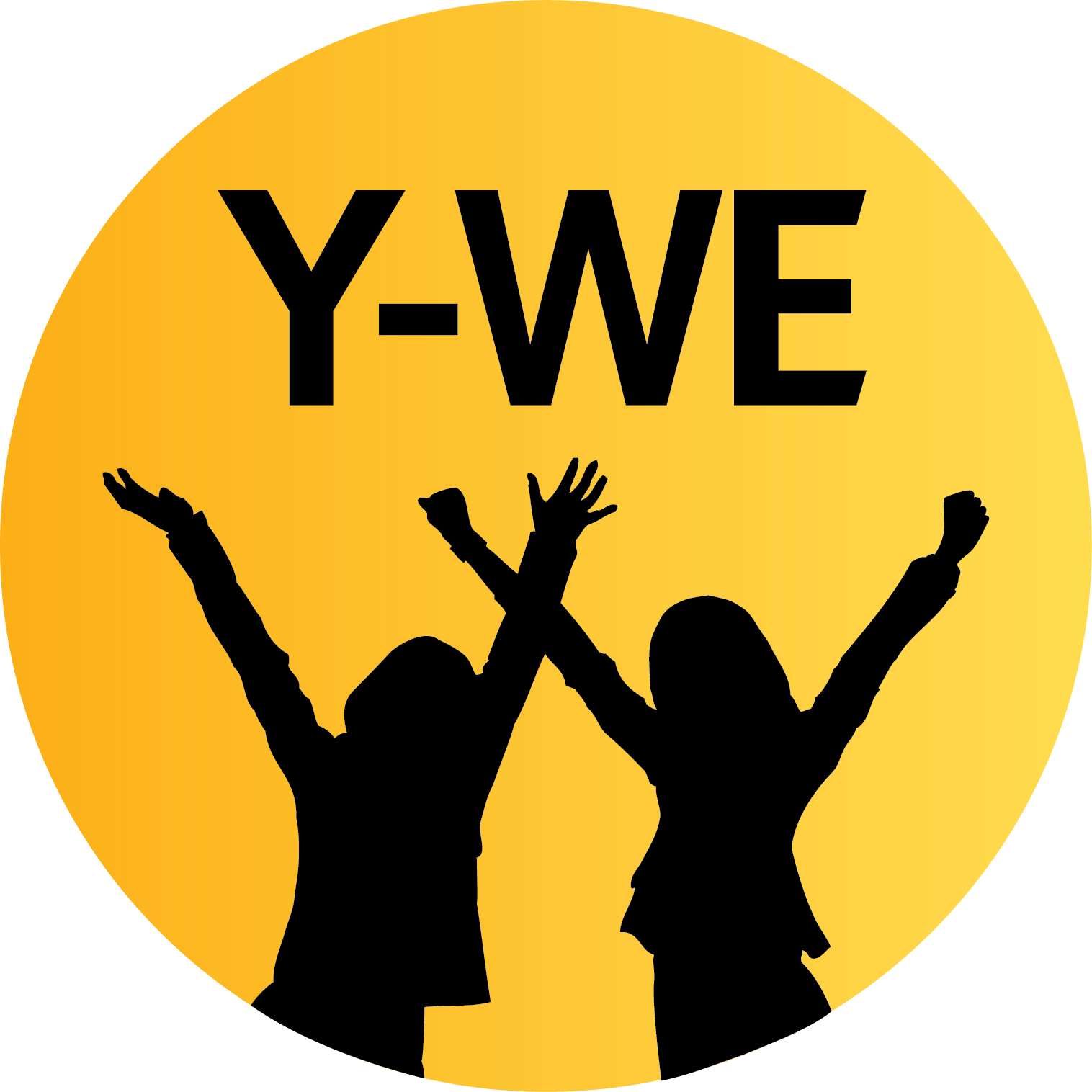By Neli Jasuja, Tayah Carlisle, and Emma Miller

Today, for the second day in a row, Seattle has the worst air quality of any big city on the planet. Since July, we’ve had less than half an inch of rain. And politicians and news outlets have been relatively quiet about it – pretending that this type of weather is normal. But every year, the temperatures are rising, the rain is decreasing, and the impact of wildfires is growing exponentially. The lack of response and urgency from our elected officials is disheartening.
Many of us as Black, Indigenous, and other people of color experience trauma and separation at the site of the land, personally and ancestrally. This is why we created Y-WE Grow, a space to reconnect with and remember our reciprocal relationship with the land. We get to regulate our nervous systems, experience joy in community, find grounding and embodiment, and turn to our allies like plants, animals, water, and soil for support. We find a sense of purpose, empowerment, and liberation caring for the Earth and sustainably growing food with love to share with our communities.
Y-WE Grow has had to cancel our program at Marra Farm three Saturdays in a row due to the Air Quality Index (AQI) exceeding 100, which is considered unsafe for young people under 18. For three weeks, this healing, intentional, liberatory space has been inaccessible to us, and we feel the impacts.
Youth are expressing the need for dedicated spaces to express and process climate grief and demanding accountability on the part of lawmakers, polluters, and adults in power. It’s not an appropriate expectation that BIPOC and other marginalized young people take on the burden of Environmental Justice activism at the expense of their childhood and future. Y-WE youth activists are already burnt out and experiencing mental and physical health impacts.
We are doing what we can to support the community, such as providing free K95 masks, alternative indoor programming, community wellness and mental health support, spaces for young people to process, and avenues for them to advocate and take action if they feel called. While we’re grateful for the ecosystem of Environmental Justice and youth-led organizations, activists, mutual aid collectives, and communities doing this work across our region, we recognize that systemic changes need to be implemented. Youth (and adults) deserve access to resources in their schools and on legislative and governmental levels.
Our love goes out to folks with respiratory and other health conditions, those who don’t have a choice to stay inside – including agricultural workers and houseless folks, those fighting the fires, and everyone feeling the impacts. We’re also sending love to the land and beings on fire. Fires are not inherently bad – they can actually support sustainable nutrition and abundance in natural ecosystems. Indigneous communities have used methods of controlled cultural burning to support the health of the land and people for millennia. However, recent history of settlers suppressing fires and outlawing cultural burning, in addition to broader Climate Change factors, have led to bigger, more devastating fires that are harder to control. You can check out more about the intersection of wildfires and environmental justice in this post from local organization Got Green, as well as some of the resources linked below.
The rain will be here soon to wash this away, but let’s not forget that there is an urgency to prevent this from becoming a yearly pattern.
We’re here to chat as practical needs and emotions come up through this time. Shaena, our Community Wellness & Mental Health Specialist, can share access to various resources. Y-WE Youth can schedule time with Shaena here.
Further information and resources:
-The U.S. Environmental Protection Agency (EPA)’s “Air Quality Index: A Guide to Air Quality and Your Health”
–Indigenous Fire Practices Shape our Land
–‘Fire is medicine’: How Indigenous practices could help curb wildfires
–Duwamish River Community Coalition Clean Air Program–Basilica Bio: Health and Safety Tips
